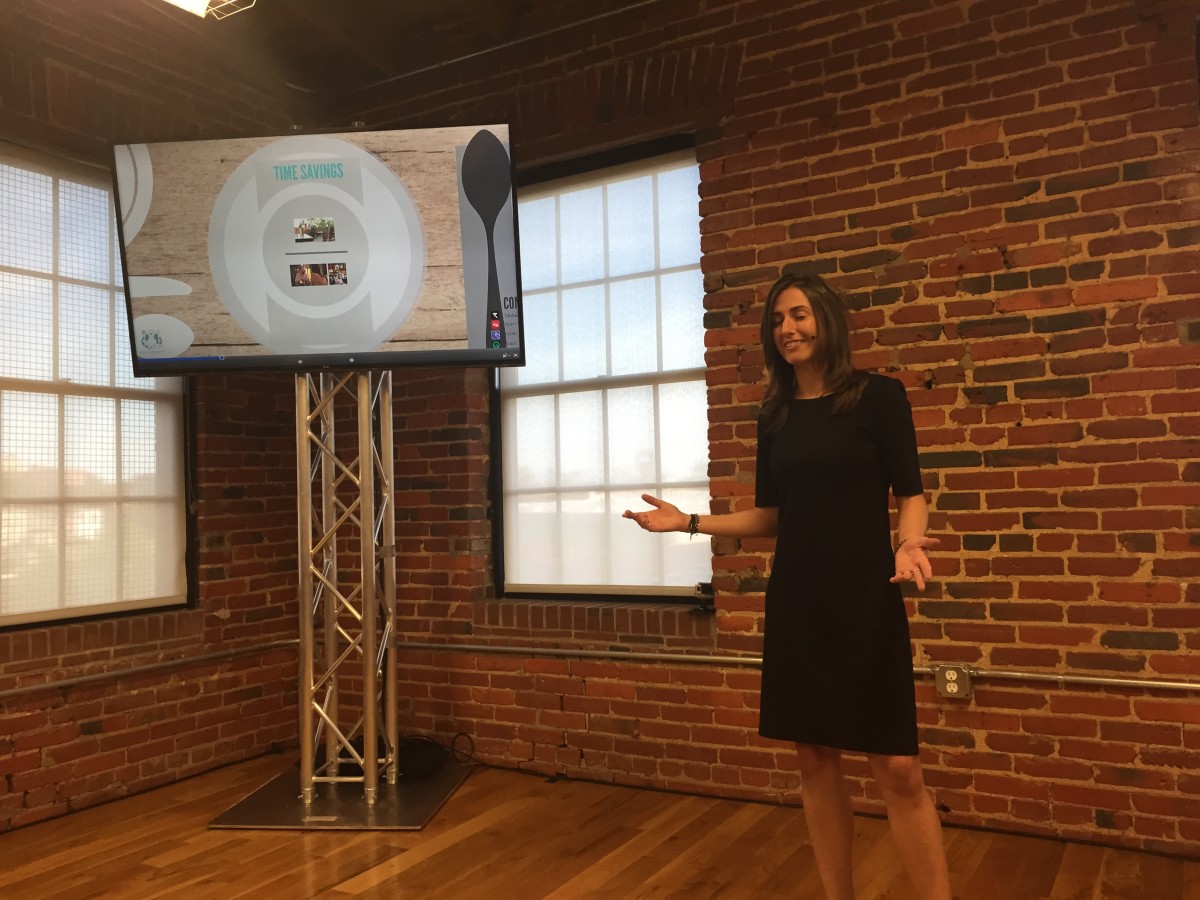It was Ladies’ Night on Tuesday — but not the kind that involves little black dresses or discounted drinks.
Instead, men and women across the country tuned in to the U.S. Women’s National Soccer Team as they took on Germany, while members of the D.C. tech scene crowded into incubator 1776 for the first-ever, sold-out Women Startup Challenge pitch competition.
The first round of the competition was a crowdfunding stage, where over 300 women-led startups applied, 180 were accepted and 88 actively fundraised over $365,000. Tuesday night’s event was a showcase of the top 12 ventures from the crowdfunding round — with founders pitching their ideas to a panel of investors in a bid to win a grand prize of $50,000 contributed by Craig Newmark of Craigslist and noted investors Joanne and Fred Wilson.
An hour or so after Carli Lloyd scored the goal that would give the U.S. Women’s Soccer team a victory, Maci Peterson — the 28-year-old founder of the regret-blocking On Second Thought — defeated a field of seasoned competitors in the Women Startup Challenge. On Second Thought is a platform that allows users to unsend text messages — a venture Peterson started around a year ago after experiencing an autocorrect disaster. While texting an ex-boyfriend, Peterson meant to say she didn’t know why she kept missing his calls — but accidentally sent a text saying she didn’t know why she was missing his balls.
Oops.

So far, that typo is paying dividends for Peterson. The Women Startup Challenge was created because of the dismal statistics surrounding funding for women-led startups; only 7 percent of investor money goes to women-led startups despite a recent explosion in the number of women-run businesses. Peterson, though, already has funding in the works in addition to the $50,000 she took home on Tuesday. Plus, her victory comes on the heels of winning the UP Global and Kauffman Foundation’s #StartupOasis pitch competition at South by Southwest last year.
Put another way, if Peterson has encountered any sexism as an entrepreneur, it sure hasn’t slowed her down.
When asked about sexism specifically, she replied: “It’s a tough question to answer because I only know my experience. I don’t know if things would have been easier if I were a white male … because I’m not one.”
Despite the female-centric nature of the evening, uncertainty was common when speaking to founders about sexism. Julia Kurnia, for example, is the founder and sole employee of Zidisha — a loan crowdfunding platform for people in developing countries. She pointed out that women have it pretty good in the U.S. compared to many countries in Africa and Asia where her platform is used.
“I’ve heard a lot of stories but I’ve never personally encountered prejudice because I was a woman,” she said.
Still, Kurnia nodded to the fact that many of challenges women face in the states are subtle. For instance, Kurnia does all the front-end and back-end programming of her platform — a fact that impressed the judges and led to a spontaneous round of applause from the audience during the Q&A part of her presentation. Kurnia doesn’t have a technical background, though; she taught herself how to program after encountering quality issues when she first hired out that part of her business.
She says being a bit late to the programming party could have been due to gender. “There’s often this unconscious perception that computer science or programming is something that’s for guys, so I never got consciously interested in it until much later,” Kurnia said.
The only way to fix this is to have a lot more women starting companies and being role models.
Kim Butler was another participant in the competition, pitching her do-it-yourself marketing kit Amplify Loud. She has been an entrepreneur since the ripe age of 11 when her hobby of candy-making turned into a contract to make 18,000 candy bars for her Maryland high school. Butler boasts 36 years of experience running different companies and made a similar point.
“There is a blurred line where women are on one side and men are on the other,” she said. “And I think a lot of times it’s subtle. They won’t look you in the face and say: You’re a woman and I don’t want to deal with you.” But Butler did add that it can be more difficult to be taken seriously as a woman — especially when it comes to financing.
Once again, that reality — which the numbers bear out — is built largely on subtle and unconscious perceptions. That’s what led Allyson Kapin, founder of Rad Campaign and Women Who Tech, to organize the Women Startup Challenge in the first place.
“If an investor’s personal network is composed of mostly white men, that is who they end up typically funding,” she explained. “And when a company’s culture is comprised mostly of white men, that is typically who they end up attracting.”
The flipside of that, though, is that a snowball effect or tipping point could occur in the other direction to close the gender gap. Kurnia expressed this as well, saying: “The only way to fix this is to have a lot more women starting companies and being role models.”
And that’s precisely why Tuesday was such a success: Whether you were watching Lloyd’s winning goal or Peterson’s winning pitch, there were plenty of role models in the spotlight.







